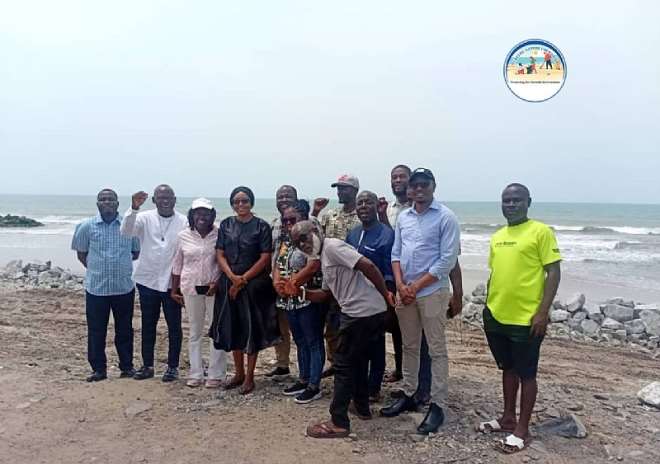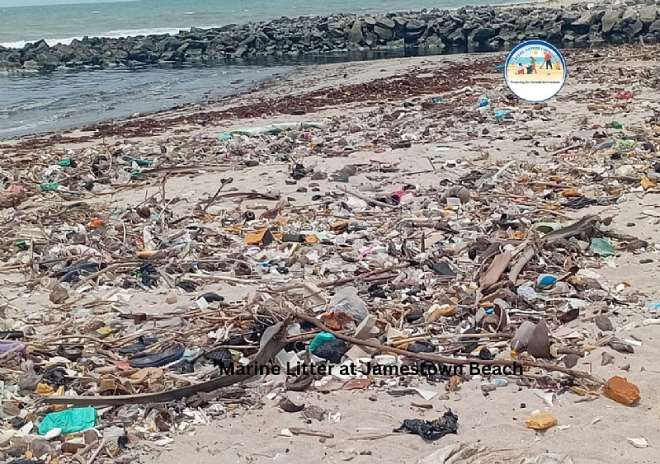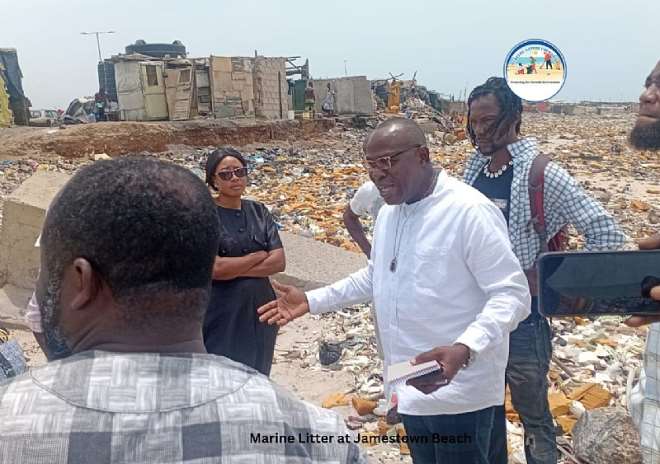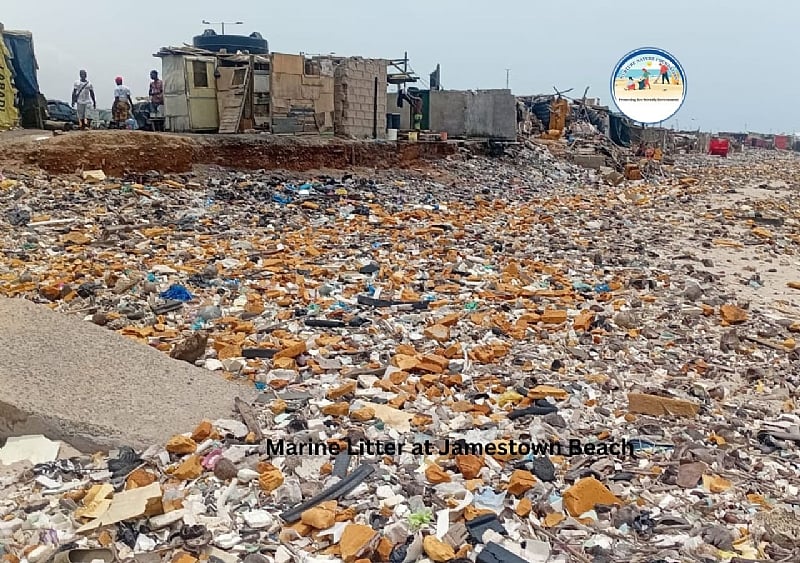Strategic partners in the implementation of the West Africa Coastal Areas (WACA) project, which includes the government of Ghana, the World Bank, and civil society organisations through the Coastal CSOs Forum (CCF) have scaled up monitoring of the projects.
As part of the upscale monitoring mechanism rolled up, a high-level team representing the various actors – Ministry of Science and Technology (MEST), World Bank, Nurture Nature Foundation (NNF), Fill the Gap Africa (FTGA) and some assembly members – paid a working visit to some of the project sites in the Greater Accra region.
The WACA project monitoring team was made up of Dr Memuna Mattah, who represented MEST; Mr Raymond Kirwa, who represented the World Bank; Mr Peter Asiedu, the Executive Director of Nurture Nature Foundation; and Mrs Vida Akekodaga, the Chief Executive Officer of Fill the Gap Africa, who represented the CSOs under Coastal CSOs Forum (CCF).
The sites visited were Shaibu in the Ablekuma West Municipal Assembly and Jamestown in the Accra Metropolitan Assembly.
The team were dismayed and disheartened at the volume of waste material deposited at the Jamestown beach, amidst evidence of coastal erosion which has caused considerable damage to culverts along the estuary bridge.
The team also observed that makeshift structures have been constructed along the shore, which has created operational nuisances and increased illegal human activities at the shore, including open defecation, burning of waste material, and other unhealthy practices.
Mr Kirwa, representing the World Bank, expressed concern about the waste predicament at the shore, which is mainly composed of insulators, coconut shells, and broken food packages.
He therefore questioned why the shore was virtually covered with an avalanche of waste products and enquired how what can be done to prevented the waste from entering the sea.
Mr Asiedu, NNF Executive Director, and Mr Maxwell Adjei, a member of the community committee, took turns to address the World Bank officials’ concerns as they stressed that the Korle Lagoon is a carriage route for waste from the inland drainages which is emptied into the sea through the James Town beach.
Mr Adjei also blamed the dwellers in the makeshift structures along the coast, who he claimed deposit their waste at the shore due to their inability to pay for the fees charged by waste collection companies.
In addition, he said the skip bin provided is inadequate and easily gets filled up, leaving no choice but to dump the waste generated on the shore or into the sea by the coastal dwellers.
Mr Asiedu, on the other hand, suggested the installation of a fortified litter trap to withstand the high volume of water pressure from inland through the Korle lagoon estuary into the sea.
The NNF Executive Director also suggested that district assemblies in the catchment jurisdiction of the Korle lagoon must redesign drainages which can prevent waste from entering into the Korle lagoon.
Mr Asiedu also called for a national policy for waste segregation to ensure the segregation of waste at source which will allow Bola taxis and skip bin trucks to have different sacks to separate waste collections from source before disposal at the dump site.
Mrs Sarah Boasiako, also a member of the World Bank team, commended the Bola taxis for their persistence in using different sacks for waste, such as plastics, paper, and cans; however, she insisted the skip bin trucks need to emulate equally.
The West Africa Coastal Area (WACA) Program, including its Resilience Investment Project (ResIP 2), is a regional initiative focused on strengthening the resilience of coastal communities and areas in West Africa.
The program aims to address transboundary coastal challenges like coastal erosion, flooding, and pollution, as well as the degradation of vital ecosystems and involves collaboration between West African countries, international organisations and development partners.
It seeks to strengthen the resilience of coastal communities and areas in West Africa by addressing transboundary challenges and promoting sustainable coastal management.
The focus areas for the WACA programme is to address coastal erosion, flooding, pollution, ecosystem degradation, and the need for improved institutional coordination.
The program aims to protect and restore ecological, social, and economic assets of coastal areas, helping to mitigate the impacts of climate change and natural disasters.





